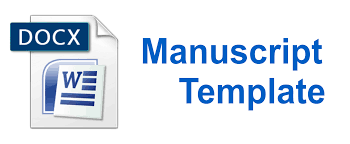Sosialisasi Manajemen Pengembangan Karir Profesi Guru di Era Kurikulum Merdeka Belajar di Sekolah SMA Daruss’adah Pangkalan Susu
Abstract
The management of career development for teachers in the era of the "Merdeka Belajar" curriculum in schools faces several challenges. One of these challenges is the increasing demand for complex competencies: The "Merdeka Belajar" curriculum requires teachers to possess broader and deeper competencies, such as pedagogical, personality, social, and professional competencies. This necessitates continuous self-development on the part of teachers to meet these demands. Additionally, there are limitations in terms of access to information and training: Not all teachers have equal access to the necessary information and training required to develop their professional careers. This is particularly true for teachers working in remote areas or those with financial constraints. Furthermore, there is a lack of support and incentives: Support from schools and the government is crucial for teacher career development. However, not all schools provide adequate support in this regard. Moreover, the incentives offered are limited, thereby not sufficiently motivating teachers to pursue their professional careers. The lack of sustainable career development programs is also a concern: Current teacher career development programs are often limited to short training sessions or seminars. However, sustained career development programs would be more effective in helping teachers enhance their teaching quality and advance their professional careers. Additionally, the absence of clear national standards: The absence of clear national standards for teacher career development results in varying policies across different schools and regions. This can lead to disparities in teacher career development throughout the Indonesian regions.
References
Bugin, Burhan H.M. (2007). Penelitian Kualitatif: Komunikasi, Ekonomi, Kebijakan Publik, dan Ilmu Sosial. Jakarta: Kencana Prenama Media Group. Danim
Keputusan Menteri Negara Pendayagunaan Aparatur Negera Nomor 84 Tahun 1993. Tentang Jabatan Fungsional Guru dan Angka kreditnya. Keputusan Menteri Pendidikan Nasional No.045/U/2002. Tentang Kurikulum Inti Pendidikan tinggi.
Mulyasa, E. (2013). Standar Kompetensi dan Sertifikasi Guru, Bandung: Rosdakarya. Nasution. (2003). Metodologi Penelitian Naturalistik Kualitatif. Bandung: Tarsito.
Pengembangan Profesi Guru. Bandung: Alfabeta. Supriyadi, Dedi. (1999). Mengangkat Citra dan Martabat Guru. Yogyakarta: Adicita Karya Nusa. Undang-Undang Nomor 14 Tahun 2005, tentang Guru dan Dosen. Depdiknas.
Peraturan Pemerintah Nomor 19 Tahun 2005. Tentang Standar Nasional Pendidikan. Saondi, Ondi dan Aris Suherman. (2010). Etika Profesi Keguruan. Bandung: PT Refika Aditama. Sa’ud, Udin Syaefudin. (2009)
Sudarwan. (2013). Profesional dan Etika Profesi Guru. Bandung: Alfabeta. Iskandar. (2008). Metodologi Penelitian Pendidikan Kuantitatif dan Kualitatif. Jakarta: Raja Grafindo Utama









